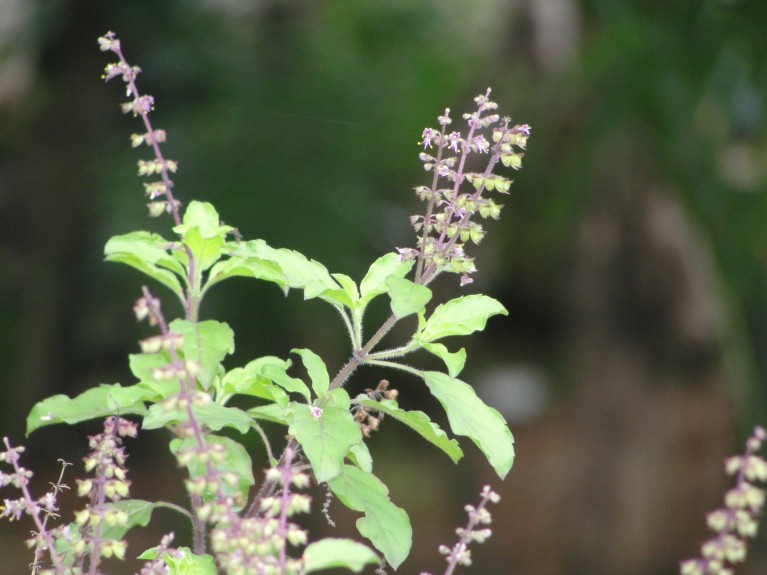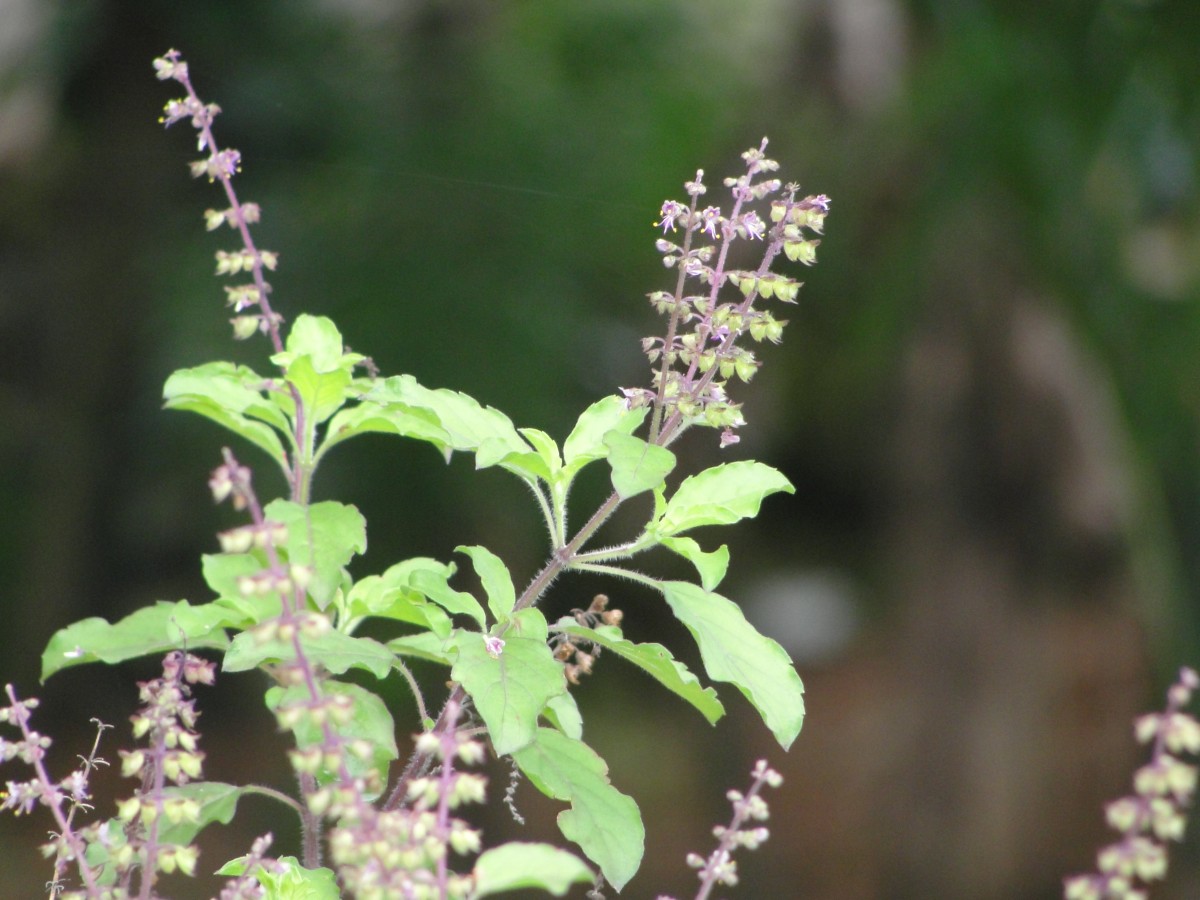You have full access to this article via your institution.

The extract of tulsi leaves enhanced the bioavailability of an antibiotic used to treat mastitis in goats. Credit: Shashidhara Halady/CC-BY 3.0
Scientists have discovered that tulsi leaf extract enhances the bioavailability of an antibiotic used to treat mastitis, a mammary gland infection in goats1. The leaf juice also protects tissues from inflammation-induced damage.
The researchers say the combination of the leaf extract and the antibiotic may emerge as an effective treatment strategy for lactating goats, cows and buffaloes.
In India, goats contribute to 27.8% of all livestock, but disease like mastitis, triggered by Staphylococcus aureus, causes huge economic loss. Antibiotics alone cannot counter the harmful effects. Scientists at the West Bengal University of Animal and Fishery Sciences in Kolkata, induced mastitis in goats. One group, treated as control, received only ceftriaxone antibiotic. The other group received a single dose of the antibiotic, followed by a single dose of tulsi leaf juice every day for a week.
The team, led by Tapas Kumar Sar, found the presence of ceftriaxone and its active metabolite ceftizoxime in goat milk as long as five days after its administration. Researchers say the leaf extract increased the longevity of the drug molecules in body fluids by inhibiting their removal through excretion.
The leaf extract also decreased the minimum inhibitory concentrations of both ceftriaxone and ceftizoxime. “It means that the drug and its metabolite can kill the disease-causing bacteria at a lower dose, sparing healthy cells and reducing the risks of drug resistance,” Sar says.
